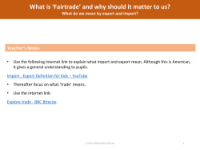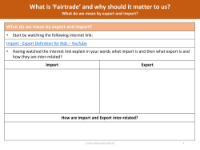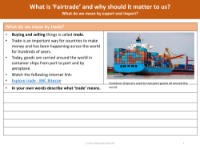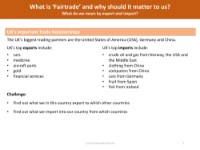Import and Export in the UK - Info sheet
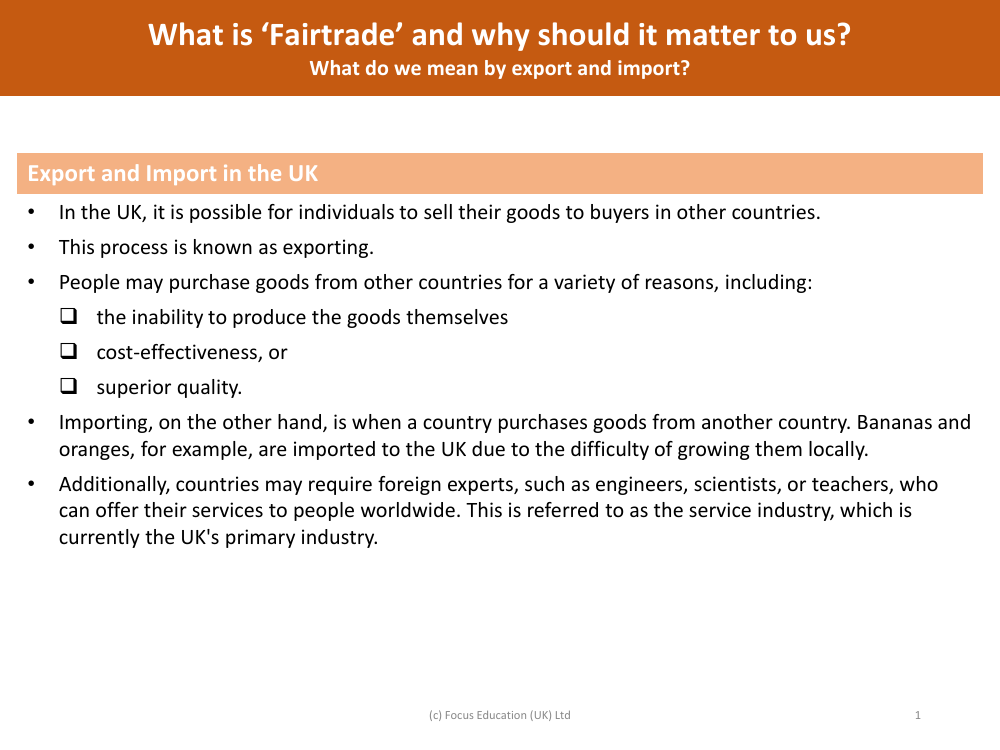
Geography Resource Description
In the United Kingdom, the commercial landscape allows for the exchange of goods beyond its borders, a process known as exporting. This enables UK-based individuals and businesses to reach a global market, selling their products to buyers in various countries. Exporting is a vital component of the UK's economy, as it allows for the expansion of markets and the sharing of British-made goods internationally. The reasons for exporting can range from the unique appeal of British goods, their quality, or even their cost-effectiveness, making them desirable to overseas customers.
Conversely, importing is the act of bringing goods into the UK from abroad. People in the UK might import products for several reasons, such as the inability to produce certain goods domestically due to climate or resources, or because imported goods might offer better value or superior quality compared to locally produced items. A common example of imported goods are bananas and oranges, which are not climatically suited to be grown in the UK and are therefore brought in from countries where they thrive. Beyond tangible goods, the UK also engages in the service industry, which includes the exchange of expertise in fields like engineering, science, and teaching. Services represent a significant portion of the UK's economy, with the service sector being the largest industry in the country. Understanding the dynamics of import and export is crucial for grasping the full scope of the UK's economic interactions on a global scale.


